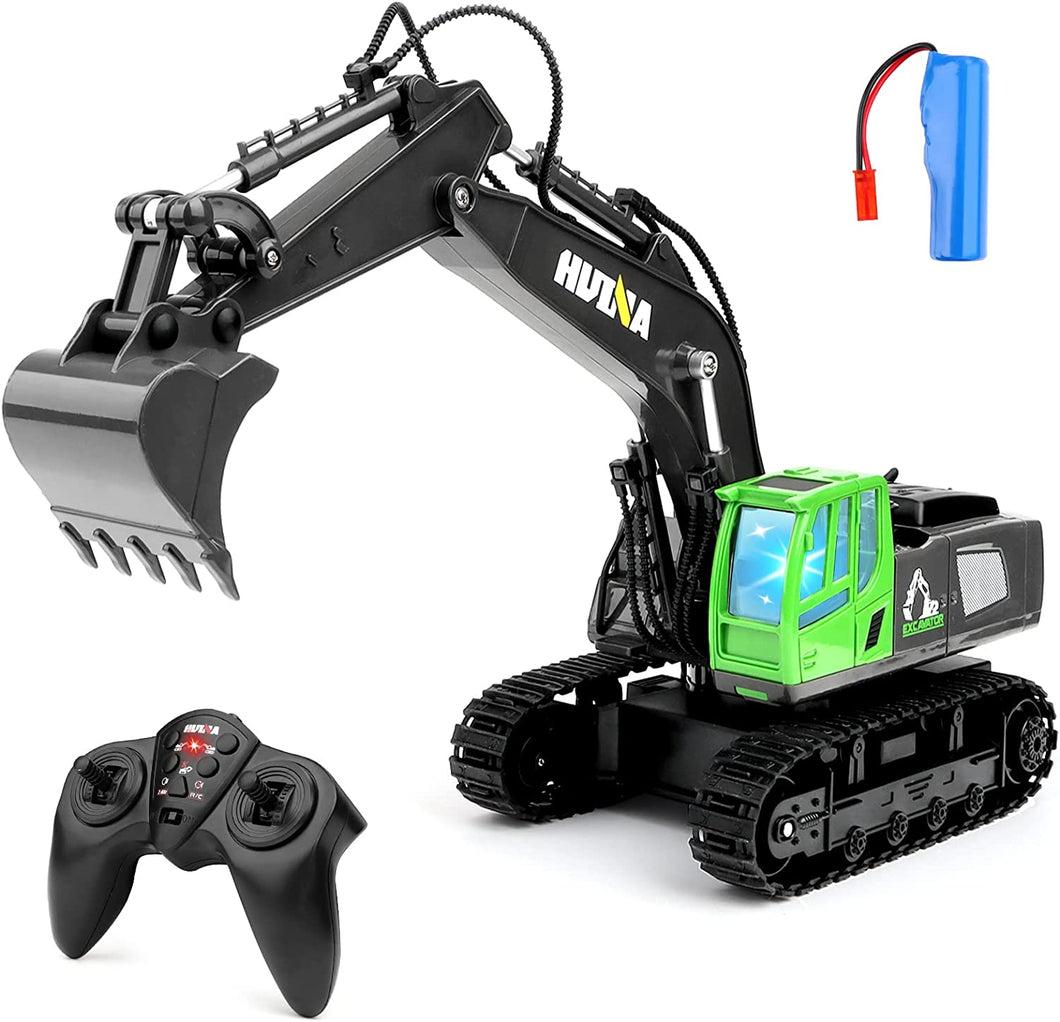Discover the Value of Excavator in Modern Building Projects
Excavators are crucial tools in modern building jobs. Their versatility enables them to perform a large range of tasks, from excavating and grading to demolition and website prep work. Advanced attributes, such as hydraulic add-ons and GPS, boost their abilities and efficiency on task sites. As the industry evolves, the significance of excavators expands even a lot more. Comprehending their role can expose understandings right into the future of construction practices. What exists in advance for these makers?
The Convenience of Excavators in Different Projects
Although excavators are commonly connected with large construction jobs, their adaptability allows them to be utilized in a vast variety of applications, from property landscaping to utility maintenance. In city setups, excavators can browse tight areas to dig foundations for homes or install drainage systems. Their ability to carry out fragile jobs makes them suitable for landscape design projects, where they can dig deep into for ponds or plant trees. On top of that, excavators play a vital role in energy maintenance, effectively excavating trenches for pipes or wires without disrupting surrounding areas. In agricultural applications, they aid in land cleaning and soil preparation. Their flexibility allows them to be outfitted with various accessories, improving their capability across various tasks. This complex nature of excavators not only enhances various building processes but likewise shows their important function in contemporary framework growth and upkeep.
Trick Functions and Sorts Of Excavators
The discussion on essential attributes and sorts of excavators highlights the crucial characteristics that make these devices vital in building. Various excavator kinds, each designed for particular jobs, show their adaptability and efficiency throughout various applications. rc excavator. Understanding these functions and categories is essential for maximizing their usage in modern-day construction projects
Excavator Keys In Review
Excavators play a crucial role in contemporary building, offering adaptability and effectiveness throughout various jobs. These heavy equipment systems come in numerous types, each customized for specific applications. One of the most usual types consist of spider excavators, understood for their security on irregular terrain, and rolled excavators, which provide higher wheelchair on paved surface areas. Tiny excavators are favored for tight spaces and small-scale jobs, while long-reach excavators are designed for deep excavating. Additionally, there are specialized excavators, such as hydraulic excavators, which boost power and precision. Each type features special abilities, making them important for jobs varying from digging and grading to demolition and material handling. Recognizing these variants enables construction specialists to select the best excavator for their job needs.
Secret Includes Explained
Comprehending the crucial functions of excavators improves their reliable application in building and construction jobs. Excavators are identified by their effective hydraulic systems, which offer the needed pressure for excavating, lifting, and moving materials. Their verbalized arms permit a large range of movement, promoting precise procedures in restricted areas. Additionally, the range of add-ons, such as buckets, grapples, and augers, increases their adaptability to fulfill various task requirements. The dimension and weight of excavators additionally add to their stability and ability to move on different terrains. Advancements in modern technology have actually led to the integration of GPS and automation, boosting precision and effectiveness in excavation tasks. These attributes collectively position excavators as vital devices in contemporary building.
Applications in Construction
Transforming building and construction sites, excavators play a critical function across different applications, varying from property building tasks to large-scale facilities developments. These versatile devices are outfitted for tasks such as digging structures, trenching for energies, and website grading. Different kinds of excavators, consisting of crawler, wheeled, and mini excavators, offer details advantages customized to the project demands. Spider excavators master rough surfaces, while wheeled excavators supply wheelchair on smooth surface areas. Tiny excavators are optimal for constrained areas, making them preferred in city setups. The effectiveness and power of excavators substantially quicken building processes, ensuring timely task conclusion. Their versatility even more improves their relevance, enabling construction teams to take on a diverse variety of difficulties properly.
Enhancing Effectiveness and Productivity on Job Sites
Optimizing performance and productivity on task sites is a critical purpose in modern-day building and construction. Excavators play a critical role in achieving this objective by streamlining various tasks. Their ability to perform numerous functions-- such as grading, training, and digging-- decreases the demand for added tools, therefore saving time and resources.Moreover, excavators improve operations by enabling faster conclusion of tasks. With innovative attributes like hydraulic attachments and GPS modern technology, they can perform specific operations that lessen mistakes and remodel. This accuracy not only enhances the high quality of work but also enhances product use, adding to cost savings.The adaptability of excavators permits them to adjust to different site conditions, ensuring that jobs progress efficiently no matter of difficulties. By integrating excavators right into building procedures, teams can considerably enhance their overall productivity, resulting in timely project completion and increased profitability.
Safety And Security Benefits of Utilizing Excavators
Excavators significantly enhance safety and security on construction sites through enhanced operator presence and decreased hands-on labor threats. By providing drivers with a clear sight of their environments, excavators assist to avoid injuries and mishaps. Furthermore, the machinery lessens the try this site demand for workers to participate in dangerous manual jobs, additionally advertising a safer work setting.
Enhanced Operator Exposure
Although building and construction websites can be chaotic and loaded with potential threats, enhanced driver presence plays a vital function in ensuring safety and security when making use of excavators. Modern excavators are created with large, unblocked windows and strategically placed mirrors, permitting operators to keep a clear view of their environments (rc excavator). This boosted exposure is vital for finding pedestrians, other equipment, and different challenges, substantially reducing the risk of mishaps. Furthermore, several excavators integrate sophisticated modern technology, such as sensors and electronic cameras, to supply drivers with original site added perspectives, additionally boosting understanding. The capacity to see even more plainly not only aids in efficient procedure yet likewise fosters a much safer work setting, making it easier for operators to navigate complicated building sites without endangering security criteria
Decreased Manual Work Dangers
When manual work is lowered through making use of excavators, countless safety advantages emerge, considerably boosting the health of building and construction employees. Excavators decrease the physical strain connected with heavy lifting and repeated jobs, properly lowering the danger of musculoskeletal injuries. By automating procedures such as excavating, grading, and relocating materials, they allow employees to keep a much safer range from potential dangers. In addition, excavators are equipped with innovative safety and security functions, such as rollover protection systems and boosted driver functional designs, which further secure personnel on site. The outcome is a substantial reduction in workplace crashes and injuries, leading to raised efficiency and morale amongst building and construction groups. Inevitably, the adoption of excavators contributes to a safer and more reliable building setting.
Excavators in Earthmoving and Website Preparation
In modern building and construction, a considerable portion of earthmoving and site preparation jobs depends on the effectiveness and adaptability of excavators. These machines are developed to manage different dirt types and surface, making them indispensable for rating, digging, and trenching activities. Their hydraulic arms can be outfitted with various add-ons, such as augers and containers, allowing drivers to personalize their approach based on specific project requirements.Excavators excel at moving large quantities of earth quickly and efficiently, which accelerates the general building and construction timeline. They can navigate limited spaces and challenging websites where standard tools may have a hard time, improving performance. In addition, the precision of excavators assurances that site prep work adheres to rigorous requirements, minimizing the danger of mistakes that could bring about costly rework.
The Function of Excavators in Demolition Tasks
Excavators play a necessary duty in demolition jobs, as they have the power and dexterity required to dismantle frameworks effectively. Furnished with numerous add-ons such as hydraulic breakers, shears, and grapples, these machines can adjust to various demolition demands, whether for small structures or big commercial websites. Their flexibility allows operators to tackle complex jobs while maintaining security and precision.In enhancement to their demolition capabilities, excavators assist in debris removal, ensuring that job sites continue to be secure and organized. By breaking down frameworks right into convenient pieces, they permit streamlined clearing up and recycling of products, straightening with modern-day sustainability efforts.Moreover, excavators can access tight areas and navigate irregular terrain, making them indispensable in metropolitan demolition projects. On the whole, their durable design and multifunctionality make excavators a crucial possession in the demolition stage of construction, adding substantially to task timelines and effectiveness.


Future Patterns in Excavator Technology and Usage
As the building and construction market evolves, developments in excavator technology are poised to change their usage and efficiency considerably. One considerable pattern is the assimilation of automation and expert system, allowing excavators to run with very little human intervention. This shift will certainly boost precision in tasks such as grading and trenching, lowering human mistake and increasing productivity.Additionally, the increase of electrical and hybrid excavators is shaping a much more lasting building and construction setting, decreasing carbon emissions and gas costs. Enhanced telematics systems are likewise arising, enabling real-time monitoring of equipment performance and maintenance requirements, which can lead to better operational efficiency and longer devices lifespan.Moreover, improvements in accessory technology are increasing the adaptability of excavators, enabling them to execute a more comprehensive range of jobs. The combination of these trends demonstrates a future where excavators are smarter, greener, and more versatile, ultimately improving building task dynamics.
Regularly Asked Questions
Exactly How Do Excavators Contrast to Various Other Building Equipment?
Excavators, characterized by their adaptability and power, excel in excavating and earthmoving compared to various other equipment. Their ability to execute different jobs, including lifting and demolition, makes them essential in construction tasks, enhancing general efficiency.

What Is the Average Lifespan of an Excavator?
The typical life expectancy of an excavator typically varies from 7,000 to 10,000 operating hours, depending on maintenance, usage problems, and model. Proper treatment can extend this life-span, guaranteeing peak performance throughout its operational years.
Just How Are Excavators Preserved for Optimum Efficiency?
Excavators require routine maintenance for peak performance, consisting of routine inspections, fluid checks, filter substitutes, this website and prompt fixings. Applying a precautionary upkeep schedule aids prolong their life-span and guarantees efficient operation in different building and construction environments.
What Are the Costs Connected With Renting vs. Acquiring an Excavator?
The costs related to buying an excavator versus renting out differ significantly. Renting out offers lower upfront costs however can collect in time, while acquiring calls for a substantial preliminary financial investment, but supplies long-term financial savings and property possession advantages.
What Training Is Required to Run an Excavator?
Operating an excavator calls for specialized training, normally consisting of security procedures, maker procedure strategies, and ecological awareness. Qualification programs usually mandate sensible experience, making it possible for operators to manage various tasks effectively while making certain compliance with industry regulations. The most typical kinds consist of crawler excavators, recognized for their stability on irregular surface, and rolled excavators, which supply greater wheelchair on paved surfaces. Small excavators are favored for small-scale tasks and tight spaces, while long-reach excavators are developed for deep digging. Additionally, there are specific excavators, such as hydraulic excavators, which boost power and precision. Various types of excavators, consisting of crawler, wheeled, and mini excavators, provide details benefits customized to the job demands. Spider excavators succeed in harsh surfaces, while rolled excavators provide movement on smooth surfaces.